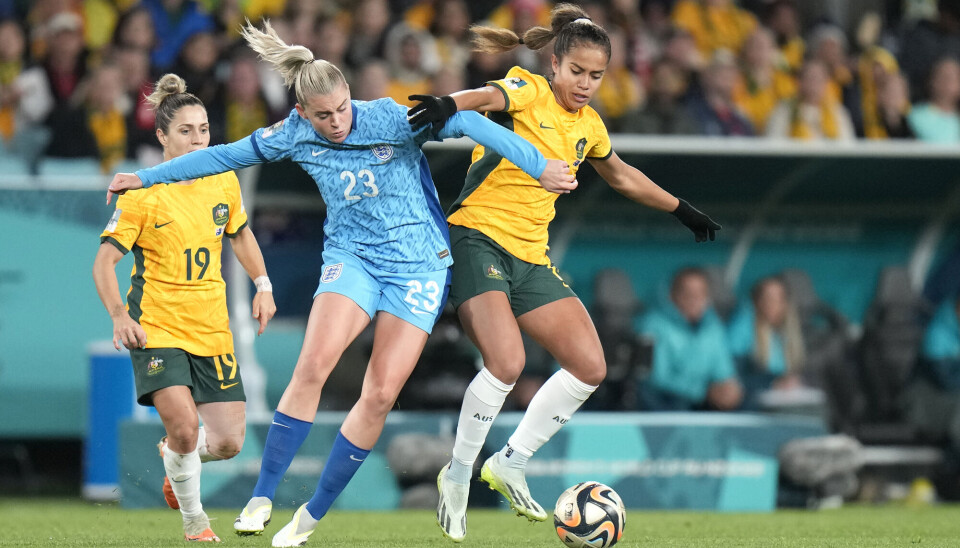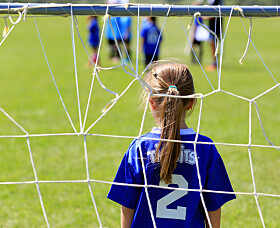
Do men play better football than women?
You might think that you can judge the quality of football regardless of whether men or women are playing the field. One study suggests you are wrong.
The grand finale in The FIFA Women's World Cup which has been hosted by Australia and New Zealand is about to go down this Sunday.
Spain is playing England in what has been deemed the most successful tournament in history, with record-breaking ticket sales and large audiences around the world watching the 64 matches.
The competition was founded in 1991. The FIFA World Cup by comparison – the one for the male teams – was founded in 1930.
A lot has happened over the past decade in terms of lifting the image of women playing football.
Even so, “whether one looks at revenue, investment or coverage, men’s sports do better than women’s,” the researchers behind a study on professional football performance write.
Many assume that this is due to differences in quality of the athletic performance, according to the researchers – who decided to put this to the test.
Now you see the gender, now you don’t
An experiment was conducted at the University of Stavanger in Norway, the University of Zurich in Germany, and Southern Utah University in the USA.
Just over 600 participants were shown video clips of elite female and male football players. In one version, the image was clear, and it was easy to see whether the game was being played by men or women. In another version, the image was blurred to the extent that a viewer could not make out the gender of the players.
“When the respondents could not identify the gender of the players, they rated the quality of the game as equal. As soon as they could identify the gender of the players, they rated the men as better than the women,” a press release about the study states.
These results tell us that prejudice and stereotypes control the perception of quality in women’s football, according to associate professor Cornel Maria Nesseler at the University of Stavanger.
Socialised to prefer male players
“When we know that the players are male, we prefer to watch this. But when we don’t know the gender, it makes no difference for us. This may indicate that we as a society in general underestimate female sports,” Nesseler says in the press release.
He believes this may be due to the skewed media attention given to male performers and teams, and how male sports are described as more spectacular than female sports. This could lead to audiences being taught to believe that male performers hold higher standards – even though this may not be true at all.
The same point was also made prior to the World Cup by French telecom company Orange. Halfway through a videomontage of what appears to be top French male football players, it is revealed that the players are in fact female. The ad went viral, and "thousands of fans marveled at the visual effects—and the message it contained", according to an article in Time.
Constant comparison
In a 2014-study on the status of Women’s Football in Norway, researchers Arve Hjelseth and Jorid Hovden show how women’s football is constantly compared to men’s football – and found lacking.
“Women’s football is presented as something different, something gendered based on women’s physical shortcomings and lack of mental capacity – which can’t measure up to men’s,” Hovden said about the results of the study.
Singling out women to such an extent is particular for football, the researchers claim. In many other sports comparing the genders is not done to the same extent.
Change seems to be coming
Nesseler hopes that the study he has participated in may lead to more attention and media coverage of female sports.
“Hopefully this might lead to the audience changing the perception of differences in quality in sports, if we become more used to seeing female sports on TV and in other media,” he says.
The 2023 FIFA Women’s World Cup may prove a game changer. According to British newspaper The Guardian, the tournament has taken “women’s football to another level”.
The focus has been on the football being played, rather than everything around it, Guardian football writer Sarah Rendell said to the newspaper.
Reference:
Carlos Gomez-Gonzalez, Cornel Nesseler mfl.: Gender information and perceived quality: An experiment with professional soccer performance. Sports Management Review, 2023, doi: 10.1080/14413523.2023.2233341. Abstract




































